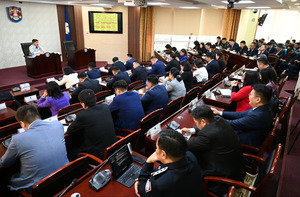
Сайн байцгаана уу? Энэ удаагийнхаа нийтлэлээр гадаадын шилдэг их дээд сургуульд сурахад хамгийн түрүүнд хэрэг болох iBT TOEFL шалгалтын жишиг даалгаврыг та бүхэнд сонирхуулж байна. Мөн нэмэлтээр зөв хариултууд, унших болон бичих хэсгийн жишээ хариултууд, сонсох хэсгийг бичгээр хавсаргасан байгаа.
READING SECTION
Унших даалгаварт ихэнхдээ 3 эх ирдэг бөгөөд тус бүр 13 орчим асуулттай бөгөөд нэг эхийн асуултнуудад хариулах хугацаа нь 20 минут байдаг. Иймд унших хэсэг 60-90 минут үргэлжилнэ.
Most people can remember a phone number for up to thirty seconds. When this short amount of time elapses, however, the numbers are erased from the memory. How did the information get there in the first place? Information that makes its way to the short term memory (STM) does so via the sensory storage area. The brain has a filter which only allows stimuli that is of immediate interest to pass on to the STM, also known as the working memory.
There is much debate about the capacity and duration of the short term memory. The most accepted theory comes from George A. Miller, a cognitive psychologist who suggested that humans can remember approximately seven chunks of information. A chunk is defined as a meaningful unit of information, such as a word or name rather than just a letter or number. Modern theorists suggest that one can increase the capacity of the short term memory by chunking, or classifying similar information together. By organizing information, one can optimize the STM, and improve the chances of a memory being passed on to long term storage.
When making a conscious effort to memorize something, such as information for an exam, many people engage in “rote rehearsal”. By repeating something over and over again, one is able to keep a memory alive. Unfortunately, this type of memory maintenance only succeeds if there are no interruptions. As soon as a person stops rehearsing the information, it has the tendency to disappear. When a pen and paper are not handy, people often attempt to remember a phone number by repeating it aloud. If the doorbell rings or the dog barks to come in before a person has the opportunity to make a phone call, he will likely forget the number instantly.* Therefore, rote rehearsal is not an efficient way to pass information from the short term to long term memory.* A better way is to practice “elaborate rehearsal”.* This involves assigning semantic meaning to a piece of information so that it can be filed along with other pre-existing long term memories.*
Encoding information semantically also makes it more retrievable. Retrieving information can be done by recognition or recall. Humans can easily recall memories that are stored in the long term memory and used often; however, if a memory seems to be forgotten, it may eventually be retrieved by prompting. The more cues a person is given (such as pictures), the more likely a memory can be retrieved. This is why multiple choice tests are often used for subjects that require a lot of memorization.
Glossary:
semantic: relating to the meaning of something
1. According to the passage, how do memories get transferred to the STM?
A) They revert from the long term memory.
B) They are filtered from the sensory storage area.
C) They get chunked when they enter the brain.
D) They enter via the nervous system.
2. The word elapses in paragraph 1 is closest in meaning to:
A) passes
B) adds up
C) appears
D) continues
3. All of the following are mentioned as places in which memories are stored EXCEPT the:
A) STM
B) long term memory
C) sensory storage area
D) maintenance area
4. Why does the author mention a dog’s bark?
A) To give an example of a type of memory
B) To provide a type of interruption
C) To prove that dogs have better memories than humans
D) To compare another sound that is loud like a doorbell
5. Look at the four stars that indicate where this sentence can be added to the passage. Where would the sentence fit best?
For example, a reader engages in elaborate rehearsal when he brings prior knowledge of a subject to a text.
6. How do theorists believe a person can remember more information in a short time?
A) By organizing it
B) By repeating it
C) By giving it a name
D) By drawing it
7. The author believes that rote rotation is:
A) the best way to remember something
B) more efficient than chunking
C) ineffective in the long run
D) an unnecessary interruption
8. The word it in the last paragraph refers to:
A) encoding
B) STM
C) semantics
D) information
9. The word elaborate in paragraph 3 is closest in meaning to:
A) complex
B) efficient
C) pretty
D) regular
10. Which of the following is NOT supported by the passage?
A) The working memory is the same as the short term memory.
B) A memory is kept alive through constant repetition.
C) Cues help people to recognize information.
D) Multiple choice exams are the most difficult.
11. The word cues in the passage is closest in meaning to
A) questions
B) clues
C) images
D) tests
12. Which of the following best provides the important informaton in the underlined sentence from the passage. Incorrect answer choices leave out essential information or change its meaning.
A) Prompting is the easiest way to retrieve short term memory after an extended period of time.
B) A memory can be retrieved by prompting, in a case where it has been rarely used.
C) It’s easier to remember short term memories than long term memories due to regular prompts.
D) Recalling a long term memory that is often used is easy, while forgotten memories often require prompting.
13. An introductory sentence for a summary of the passage is found below. Complete the summary by choosing the THREE answer choices that contain the most important ideas in the passage. Some sentences do not fit in the summary because they provide ideas that are not mentioned in the passage or are only minor ideas from the passage. This question is worth 2 points.
The brain stores information that a person may need in the immediate future in a place called the short term memory (STM).
1. Most people can only remember numbers for a short time.
2. Many psychologists agree that only a certain amount of information can be stored in the STM at once.
3. Some techniques for memorization don’t work because of potential interruptions.
4) Elaborate rehearsal is generally considered less effective than rote rehearsal.
5) Assigning meaning to information makes it easier for the brain to retrieve.
LISTENING SECTION
Энэ хэсэгт ихэвчлэн 2 харилцан яриа 4 лекц байдаг бөгөөд ерөнхийдөө 34 асуулттай байдаг бөгөөд 60 минут үргэлжилнэ
Audio Player1. What are the speakers mainly discussing?
A) Their plans for next semester
B) Why the woman can’t go to the concert
C) Their favorite band
D) Finding a tutor
2. What will the woman do on Saturday?
A) Teach a class.
B) Mark tests.
C) Visit her cousin.
D) Go to a concert.
Listen again to part of the conversation. Then answer the question.
Audio Player3. What does the woman mean when she says this?
Audio PlayerA) She thinks he should treat her with more respect.
B) She plans to teach university.
C) She thinks Professor Mathers is not kind.
D) She thinks she’ll be as good a teacher as Professor Mathers.
4. What can be inferred from the conversation?
A) The woman never works on weekends.
B) The man and woman take the same courses.
C) The speakers live in the same dorm.
D) The man stayed after class for help.
5. How does the male student feel about the woman’s weekend plans?
A) He feels sorry for her.
B) He is excited for her.
C) He is worried about her.
D) He is jealous of her.
1. What is the main topic of the discussion?
A) Harmful televisions
B) A landfill concern
C) Computer equipment
D) Recycling films
2. What makes monitors hazardous to the environment?
A) SRT’s
B) X-rays
C) Cathode ray tubes
D) Landfills
3. According to Lisa, why can’t monitors be recycled?
A) They are too expensive to reuse.
B) There are no companies that provide this service.
C) People are too lazy to take them to recycling plants.
D) Companies prefer to store them for future use.
Listen again to part of the discussion. Then answer the question.
Audio Player4. What does Lisa mean when she says this:
Audio PlayerA) Her family has thrown monitors in the garbage.
B) Her family owns a lot of television sets.
C) Her family feels bad about how much TV they watch.
D) Her family doesn’t care about the environment.
5. What will the class do next?
A) Visit a landfill site.
B) Dissect a computer monitor.
C) Watch another film.
D) Review the film about monitors.
1. What is the purpose of this lecture?
A) To compare diamonds and gold
B) To discuss types of gems
C) To discuss the formation of diamonds
D) To review the elements of carbon
2. Which of the following is NOT one of the 4 C’s used by the jewelry business?
A) Carbon
B) Carat
C) Color
D) Cut
3. Where do natural diamonds form?
A) In a manufacturing plant
B) In an electrical insulator
C) Deep in the Earth’s mantle
D) Alongside metals such as gold
3. Where do natural diamonds form?
A) In a manufacturing plant
B) In an electrical insulator
C) Deep in the Earth’s mantle
D) Alongside metals such as gold
Listen again to part of the lecture. Then answer the question.
Audio Player5. What does the professor mean when she says this:
Audio PlayerA) Nobody will want to buy diamond computer chips.
B) Advertisers will have fun marketing this type of product.
C) Computers will take interest away from the jewelry industry.
D) Jewelers will be competing with programmers.
6. Indicate whether each sentence below describes synthetic diamonds or mined diamonds. Place the numbers in the correct box.
| mined diamonds | synthetic diamonds |
| — | — |
| — | — |
| — | — |
| — | — |
| — | — |
- are often created from a “seed”
- exist in very few places in the world
- come in countless colorful varieties
- are produced by high pressure and temperature under the ground
- could cause financial problems for the jewelry industry
SPEAKING SECTION
Энэ хэсэг нийтдээ 2 ширхэг өөрийн тань санааг асуусан асуулт, 4 ширхэг уншсан зүйл дээрээ тулгуурлаж хариулах асуулт гээд нийтдээ 6 даалгавартай бөгөөд 20 минут үргэлжилнэ .
1. Read the question. Take notes on the main points of your response. Then, respond to the question.
What do you think your life will look like after retirement? Use reasons and details to support your response.
Preparation time: 15 seconds
Response time: 45 seconds
2. Narrator: Read the question. Take notes on the main points of your response. Then, respond to the question.
Would you prefer to study in a classroom or take an online course? Use reasons and details to support your response.
Preparation time: 15 seconds
Response time: 45 seconds
In question 3 and 4 you will read a short passage and then you will hear a short talk on the same subject. Then you will answer a question that relates to both of them.
3. Read an article from a campus newspaper. Take notes on the main points of the reading passage.
Reading time: 45 seconds.
Why isn’t recycling mandatory on campus?
How does an Ivy League educational institute, such as U of C get away with being so nonchalant about recycling? After a recent search across campus, volunteers from the U of C Environmental Watch group counted only 10 recycling bins. In comparison, the students counted 30 vending machines, the majority of which carry plastics, cans, and glass bottles. Only one paper recycling bin was found. This means that almost all of the paper that is discarded on campus, including U of C residences, is being disposed of in the regular garbage. When asked why no recycling bins for paper have been placed on campus, U of C president, James Wicker, explained that the company the university employs to pick up recycling does not currently recycle paper. When asked why another company is not used, Wicker cited university finances as an obstacle.
Now listen to two students discuss the article.
Audio PlayerWhy does the woman approve of the article? State her opinion and explain the reasons she gives for holding that opinion.
Preparation time: 30 seconds
Response time: 60 seconds
4. Read a passage about Obsessive Compulsive Disorder. Take notes on the main points of the reading passage. You have 45 seconds to read the passage. Begin reading now.
Reading time: 45 seconds
Obsessive Compulsive Disorder
OCD is an anxiety disorder that causes a person to experience obsessive thoughts and to react to these with compulsive behavior or rituals. The obsessions are typically described by OCD sufferers as persistent thoughts or impulses that cause a great amount of stress. These differ from those stressors that the average person suffers from in daily life, such as work or financial problems, in that they are a product of the imagination. While most OCD sufferers admit to knowing that their concerns are not real, they cannot control the thoughts from recurring, and they compensate by performing certain repetitive actions. In addition to these symptoms and responses, a true OCD sufferer spends a large part of the day battling this disease. The debate continues over whether the disease should be classified as a psychological or biological disorder.
Now listen to a talk on the same academic subject.
Audio PlayerExplain how the professor’s description of OCD expands upon the reading.
Preparation time: 30 seconds
Response time: 60 seconds
In question 5 and 6 you will hear a conversation and a lecture. You will be asked a question about each.
5. Listen to a student asking a professor about dropping a class.
Audio PlayerIn the conversation, the student has a problem. Describe the problem. What options does the professor suggest to help the student? Which of the options do you prefer? Why?
Preparation time: 20 seconds
Response time: 60 seconds
6. Now listen to part of a talk from a geography class. Take notes on the main points of the lecture.
Audio PlayerWhat can we learn about identifying the age of icebergs from the professor’s discussion?
Preparation time: 20 seconds
Response time: 60 seconds
WRITING SECTION
Энэ хэсэг гол 2 даалгавартай бөгөөд нэг нь уншсан зүйл дээрээ тулгуурлан 200 орчим үгтэй эссэ бичих байдаг бол нөгөө нь тавигдсан асуултын дагуу өөрийн санаа бодлоороо 300 үгтэй эссэ бичих байдаг бөгөөд нийт 50 минут үргэлжилнэ.
Integrated Writing
Writing Based on Reading and Listening
Here you will read a passage about an academic topic. Then you will listen to a lecture about the same topic. You are permitted to take notes while you read and listen. You will be asked a question that relates to both the text and the listening. Your response should be 150-225 words. Hint: Look for three many points that are related. Your score will depend on the quality of your writing as well as how well you answer the question. After you have heard the lecture you will have twenty minutes to plan and write your response.
Reading:
In a vote that took place at the International Astronomical Union Conference on August 24th, 2006, Pluto lost its status as a planet in our solar system. Pluto was originally discovered in 1930 when scientists were searching for something that was interfering with Uranus’s orbit. Though Pluto was estimated to be similar in size to Earth, it was later discovered that it was even smaller than our own moon, as well as many other moons. It is now known that there are thousands of planetary objects similar to Pluto, including Eris which is slightly larger than Pluto. Choosing to reclassify Pluto to a dwarf planet honors the fact that science is about making new discoveries. While it was a sad day for Pluto lovers, people in general have accepted the idea, and the next generation of children will grow up knowing only eight planets and thinking nothing of it. As Mike Brown, the astronomer who discovered Eris, noted following the IUC’s decision, “science is self-correcting.”
Next you will listen to part of a lecture on the same subject.
Audio PlayerSummarize the points made in the lecture, explaining how they cast doubt on the points made in the reading passage.
Independent Writing
Writing Based on Knowledge and Experience
This section of the test asks you questions about common experiences. You will be asked to give your opinion and provide reasons and examples. You will not be required to have any previous knowledge on a topic. You will have 30 minutes to prepare an essay in response to the question provided.
Some people prefer to settle down and start a family in a rural area. Other people prefer the convenience of the city. Which do you prefer? Use specific reasons and examples to support your opinion.
Та дараах жишиг даалгаваруудыг хийн өөрийн түвшингээ тодорхойлох боломжтой юм. Мөн та зөв хариултууд болон ярих, бичих хэсгийн жишээг харж болно. TOEFL Practice























